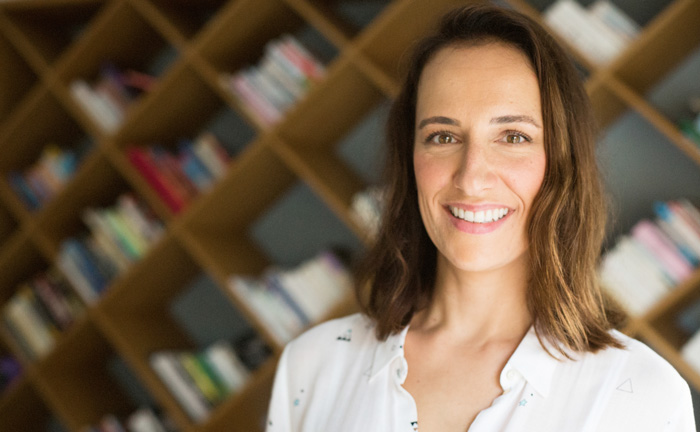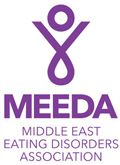It took me while to react to what’s been happening since George Floyd’s brutal death. For a good fortnight, I did question my legitimacy at covering anti-racism on the blog. But as I was evaluating what to do, I realised that I, too, might have a role to play. Especially considering the strong ties between race, sex and class discrimination and diet culture. And also recognizing that staying silent has proven to be far from enough when it comes to bring down racism.
I don’t considerate myself as an anti-racism expert, but I am also not completely illiterate on the topic. Since my recovery in 2016, I have been reading, listening, educating myself on the intersectionality of fatphobia, gender and race and on social justice.
In her amazing book on the origins of fatphobia, sociologist Sabrina Springs shares: “Race acts as a double agent: it entails the synchronised repression of “savage blackness” and the generation of “disciplined whiteness”. Fatphobia and a preference for thinness have not (principally or historically) been about health. They have been a way the body has been used to craft and legitimate race, sex and class hierarchies.”
Learning about these systems of oppression was definitely a motivation to fully recover. I really didn’t want to take part in diet culture anymore, even more so as I learned it was built on white supremacist, colonialist, patriarchal values.
And of course, I do enjoy many privileges as a white, cis-gender, thin, financially secure woman. (I wrote about thin privilege a few months ago) But is it enough to simply be cognizant of those privileges and deciding to stay quiet? Is being quiet really the best approach right now? In my gut, it doesn’t feel like right. As a Health At Every Size practitioner, social justice is always at the back of my mind. The idea that unless freedom is for everyone, no one is really free.
So I wondered: what CAN i do?
As a business owner, what makes sense to me right now is to use my voice and platform to share resources, and maybe open up other people’s eyes to the injustices felt by so many of us.
So I am writing this post today to provide you with resources that will help us all learn about the links between fatphobia and race, to understand what each of us, in our stances and with our respective privileges, can do to support minorities.
And I’d ask you to feel free, if you don’t feel like these are helpful or if you have found better resources along the way, to share yours in comments, and challenge what I propose below. This is by no means an exhaustive list!
Here is what we can do to support more social justice, wherever you are:
Learning about and recognizing racial privilege (without blaming ourselves for it).
Unpacking white privilege is an amazing resource for this
Also, I live in Dubai and it is very common here for expats to have at-home help, typically originating from Asia or Africa. Our nanny, Estrella, is from the Philippines and has been with us for over 7 years, pretty much since I became a mother. She truly is a part of our family and, right now, she is the reason I am even able to write this, as my kids are constantly home in the middle of the Covid-19 pandemic (THANK YOU SO MUCH ESTRELLA!). But the reality is that, here, workers like Estrella have very little legal protection in place. Receiving fair and equal treatment is really down to the employer’s goodwill.
So, if you are in the same position, employing someone who might not enjoy the same privileges as you do, a great first way to address antiracism would be to ensure appropriate employment rules for these workers: making sure your worker has access to their passport and ID, that they are paid adequately for the work they do, that their living space is fully theirs, that they are able to speak to their family as they please, prioritizing and respecting their time to take holidays and days off as per their contract, ensuring they are paid extra when working more than usual are simple ways you can avoid to perpetuate discrimination.
Rejecting diet culture! and learning about the intersectionality of race and fatphobia
With articles
The Racist Roots of Fighting Obesity
It’s not obesity, it’s slavery
and books
Sabrina Springs, Fearing the Black Body: The Racial Origins of Fat Phobia
Sonya Renee Taylor, The body is not an apology
Supporting more diversity for your social media feed, or for services you aim to buy
The Balanced Black Girl Podcast
For parents: Not fearing speaking to our kids about race
Kids notice race as early as 6 months old! The problem is that we typically don’t know how to speak about it, so it stays taboo. The solution is talking about it in a neutral way, here are ways to get better at it
Podcast: Talking Race With Young Children
Here’s How To Raise Race-Conscious Children
This documentary by Nickelodeon: Nick News Presents: Kids, Race, and Unity | Hosted By Alicia Keys (From 6 yo onwards. Although it is very USA focused and requires the support of adults if watched before 12, my family found it an interesting way to spark conversations about racial discrimination, privilege, etc)
@theconsciouskid has a ton of resources you can access by becoming a patron (they start at 1 USD/month!)
For parents: Picking children’s books that have characters from diverse ethnic backgrounds
Antiracist baby, Ibram X Kendi (Illustrations fit from toddler age but it seems like the copy itself is better catered towards primary school age children, with adult support)
75 Books about Extraordinary Black Mighty Girls and Women
Mae Among the Stars by Roda Ahmed, illustrated by Stasia Burrington (3-8 yo)
Sulwe, Lupita Nyong’o (4-8 yo)
All because you matter, Tami Charles (4-8 yo)
The proudest blue, Ibtihaj Muhammad (4-8 y0)
My hair is a garden, Cozbi Cabrera (5-9 yo)
Malcolm Little : The Boy Who Grew Up to Become Malcolm X, Ilyasah Shabazz (6-9 yo)
Separate is never equal, Duncan Tonatiuh (6-10 yo)
Schomburg: The Man Who Built a Library by Carole Boston Weatherford, illustrated by Eric Velasquez (9-12 yo)




